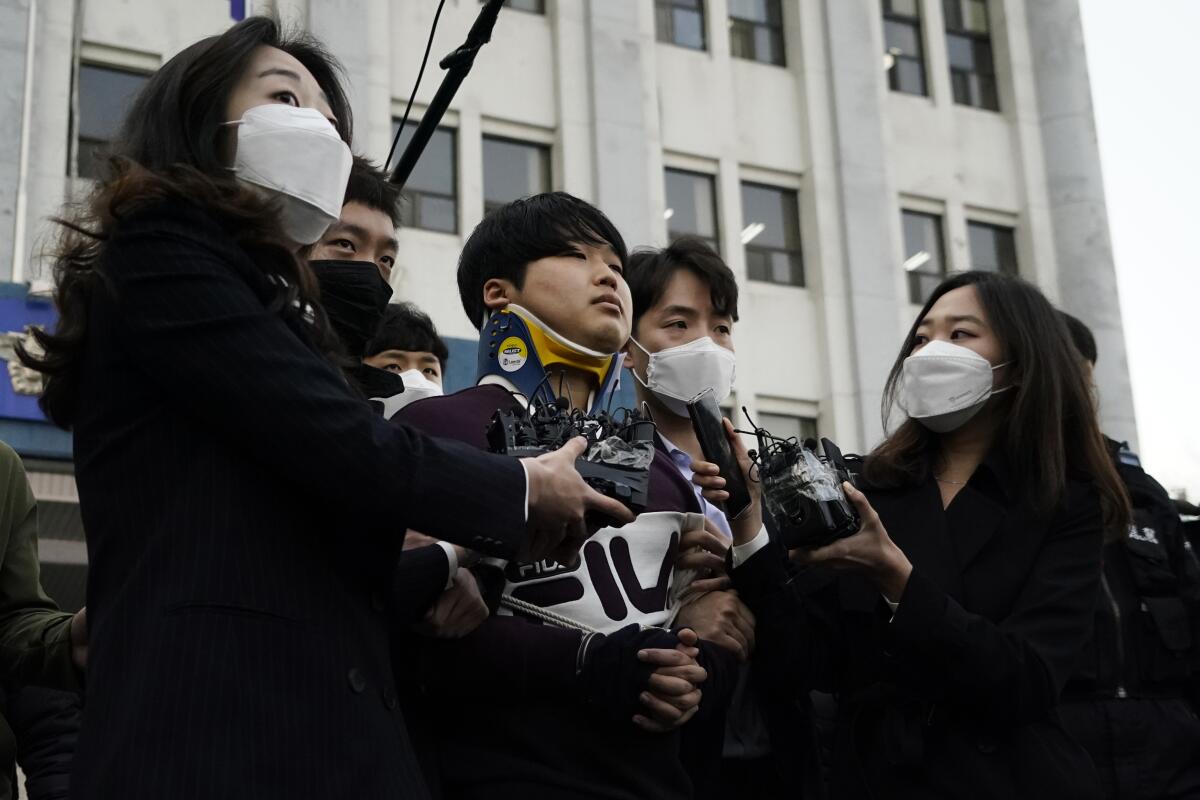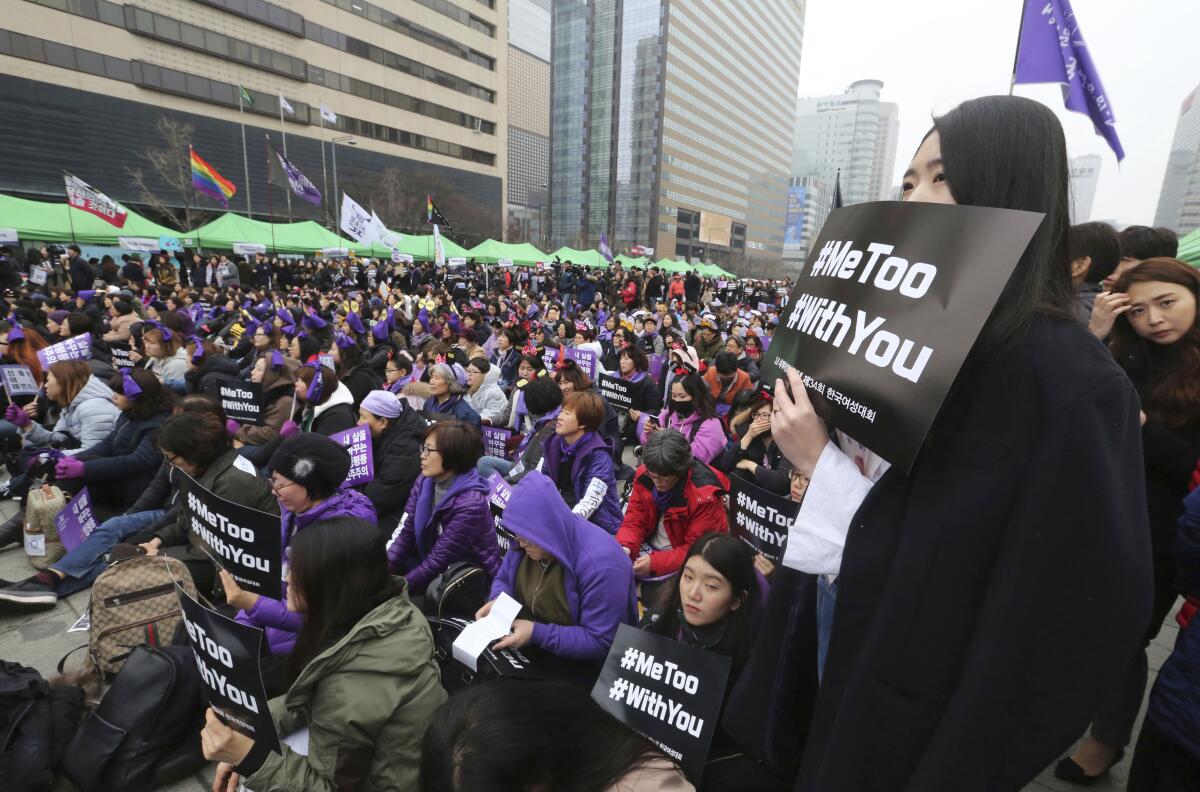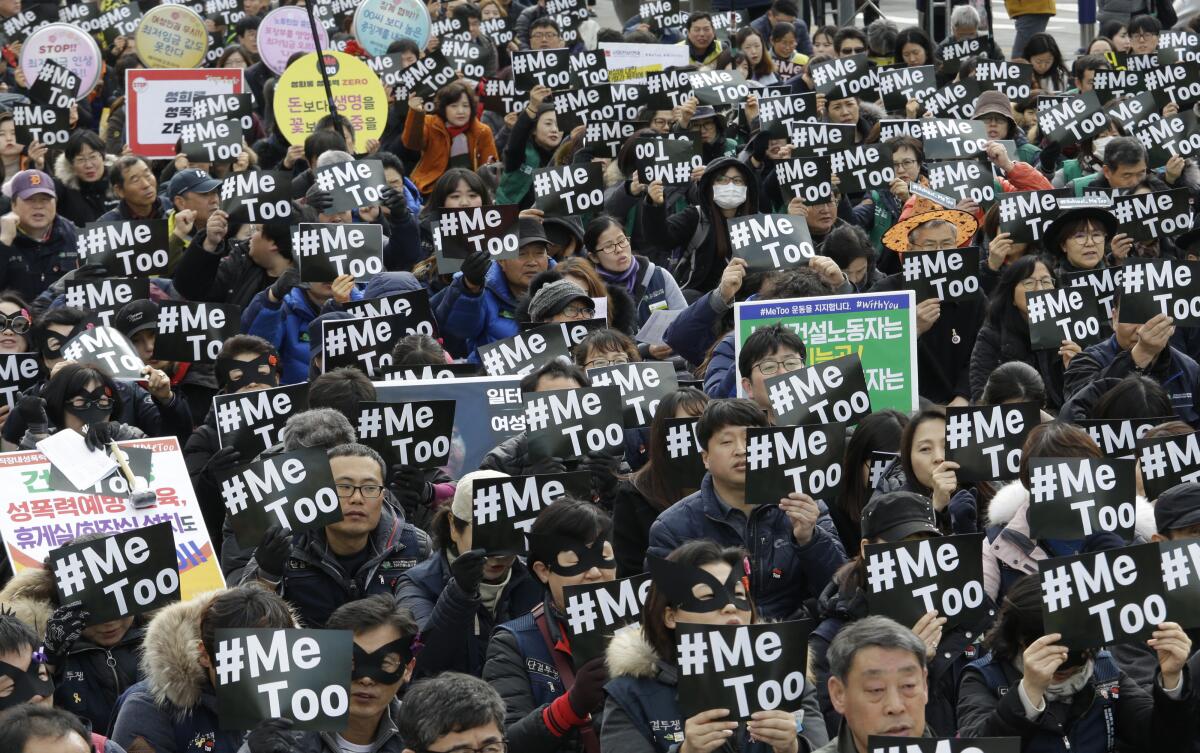South Korea âsextortionâ mastermind coerced young women into sharing graphic images

SEOUL â Trolling behind the anonymity afforded by an encrypted chat app, the man who called himself âBaksaâ pretended he was many things: a no-holds-barred loan shark, a private eye for hire and a fortysomething Korean with a prosthetic leg living outside the lawâs reach in Cambodia.
In reality he was an out-of-work recent college grad whoâd been bedridden for a year after a limb-lengthening surgery to overcome insecurities about his height.
From his bedroom, Cho Ju-bin, 25, spun illusions and masterminded one of the most notorious sex crime schemes to shake South Korea in years. He blackmailed dozens of young women into providing sexually compromising images and videos, which he sold to tens of thousands of his users. Authorities say he and his collaborators, including a 16-year-old boy, ran the operation through secretive chatrooms on the app Telegram. They hunted for prey through social media and reaped their profits through the cryptocurrency bitcoin.
The case has ignited a fierce debate in South Korea about justice and how to exact punishment for digital sex crimes. The wide-reaching scandal has again exposed an underlying culture of cavalier consumption of material depicting sexual abuse. Among the hundreds being investigated as having joined the chatrooms are police officers and elementary school teachers.
âBecause of the level of abuse and the number of victims, collaborators and participants, there was a collective shock to our society,â said Lee Hyo-rin, an activist and victim counselor with the support group Korea Cyber Sexual Violence Response Center.
The scheme is the latest in a series of headlines that have roiled South Korea in recent years involving illicit sex videos or spy cam recordings that have put the countryâs women on edge and raised questions about the dark side of the nationâs much-touted internet and smartphone infrastructure and technological adaptation. In 2019, some of the countryâs most popular K-pop stars were investigated and convicted of crimes related to the sharing of illegally recorded sexual material, some involving women who were drugged and raped.
Cho â who also called himself âCEO Parkâ â was sentenced to 40 years in prison on Thursday. Prosecutors had sought a life term. Others accused of conspiring with him to recruit and threaten the victims, advertise the chatrooms and monetize the profits received sentences ranging from seven to 15 years.

Police say more than 70 women, many of them minors, were lured into providing personal information under the guise of a potential high-paying liaison with an older man and then blackmailed into providing sexually explicit material to Cho and others who would threaten to tell family and friends or post on social media.
Those videos and images were then fed into chatrooms that operated like a multi-level marketing scheme, where members had to post their own pornographic images or pay fees up to $1,300 for access to more exclusive chatrooms. When some of the operators were arrested in late 2019, others stepped up to take their place and new chatrooms cropped up.
Cho mimicked chatrooms heâd seen on Telegram. But he styled himself as a ruthless purveyor with access to a cache of more extreme videos to attract paying users, he said in court testimony.
âMy aim was, how can I be even more extreme, and get more attention?â he testified this week at a co-conspiratorâs trial, speaking with the composure of an entrepreneur discussing a start-up venture. He has appalled the country as a man who appears as both an average college student and a criminal who intimidated his victims into torture or self-mutilation and urged his cronies to commit rape. At a previous hearing for his sentencing, he tearfully apologized and said he accepted responsibility for his crimes.
One of the victims wrote an anonymous letter to perpetrators published in the newspaper Hankyoreh, recounting how fearful she felt being threatened by invisible abusers blackmailing her from beyond computer and smartphone screens.
âWhen I saw your faces being unmasked one by one, it truly hit me that my life had been destroyed,â she wrote. âBehind your online veil, you seemed like fictional figures. I wished it was all fiction and my reality was a passing dream.â

Attorneys for the victims argued in court that the young women live with the anxiety that the videos and images they were coerced into creating would be reproduced and live indefinitely on the web.
âI hope their punishment is never-ending, the way my pain will never end,â one victim wrote in a letter read out in court by an attorney. âDid they even think there were human beings just like them on the other end of the videos?â wrote another woman, who said she keeps her hair long and wears heavy makeup to shield her face, out of fear that she might get recognized from the images.
Outrage over the case, which earlier this year eclipsed the COVID-19 pandemic in news cycles and conversations in South Korea, led to the passage of a law increasing punishments for those who possess or view illegally created sexual material. The law will also hold some websites liable for hosting such content, even though the app Telegram remains out of reach because it is based overseas.
Shin Jin-hee, a publicly appointed attorney representing many of the victims, has dealt with similar crimes in recent years but said Choâs operation was on another level. In addition to charges of distributing child pornography and illegal material, prosecutors have also charged the defendants with running a criminal syndicate, a move Shin said was unprecedented and reflected the magnitude of the case in the publicâs eye.
âThe rapid distribution, the systematic organization was to another degree of severity,â she said. âThe technology is developing so fast ... and the policies and institutions canât keep up.â

An attorney for the 16-year-old defendant, who was in high school at the time of his alleged crimes, also blamed technology for leading her young client astray. His name has not been made public.
âHe was a kid who was good at computers,â the attorney said in final arguments in court. âThe fault may be with adults who allowed children to use smartphones and the internet without proper restrictions and created this illegal content.â
Lee, the activist and counselor, said that as the digital native generation who grew up with smartphones and high-speed internet comes of age, many of its members are likely exposed to abusive, criminal material at a young age and become inured to it. Some online harassment cases her group was consulted on involved elementary school students, she said.
âWhen it comes to online sex crimes, both the victims and perpetrators are getting younger and younger,â she said. âIf youâre well versed in the web platforms, anyone can do it, and there is the solid demand to support it.â
She said because South Korea is at the technological forefront, the recent scandals were leading the country to wrestle with the right legal protections and prevention measures for the types of new digital sex crimes other countries will inevitably be dealing with as well.
âWe know itâs unacceptable in the real world, but those universal standards donât seem to apply in this online space,â she said. âWe need to change that.â
More to Read
Sign up for Essential California
The most important California stories and recommendations in your inbox every morning.
You may occasionally receive promotional content from the Los Angeles Times.











